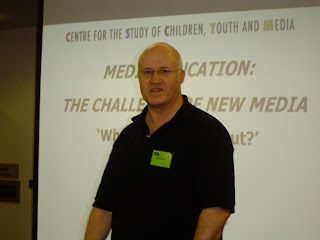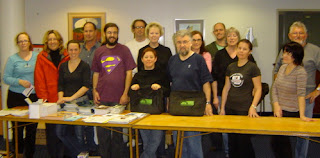The Baxters started their closing keynote with this video of clip Web 2.0 ... The Machine is Us/ing Us by Michael Wesch, Assistant Professor of Cultural Anthropology at Kansas State University.
Web 2.0 Tools and Media Resource
Visit the Teach Media NZ Diigo Group for links to the following topics
If you would like to share resources with the Teach Media NZ Group then register for Diigo and join the group today. Members can contribute to the associated forum. Other great resources for media educators in New Zealand:
National Association of Media Educators - http://www.name.org.nz/
With useful teaching / media links and resources including Script Magazine which links members of the Association. Script is the main member service of N.A.M.E. and the aim is to provide members with a mixture of news, class room teaching ideas, reviews and material to assist personal development of critical media studies awareness.Mediascape - http://www.mediascape.ac.nz/
The Guide to Kiwi Media.TKI Media Studies Community - http://www.tki.org.nz/r/media_studies/
A site for media studies teachers (NCEA levels 2–3) which includes teaching resources and virtual forums for media teachers to connect with each other to discuss developments in the subject and media issues of the day.


